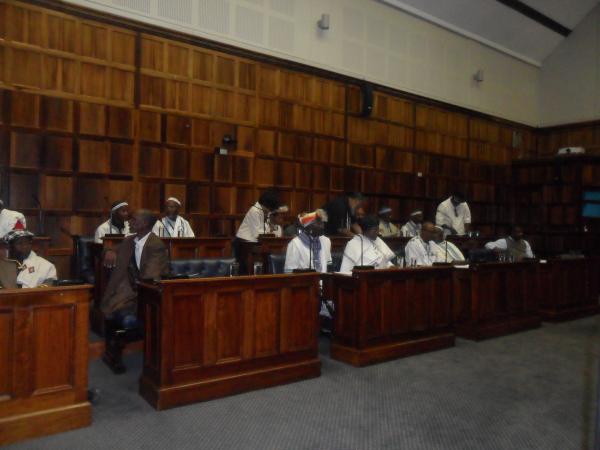Traditional Courts Bill “authoritarian and patriarchal”

Civil society organizations expressed concern during recent public hearings on the Traditional Courts Bill at the Western Cape Legislature.
Several organisations said that if the bill passes into law it will marginalize the elderly, women, young men and children due to what they describe as its “authoritarian and patriarchal rule.” They further lamented that the bill sidelines the rights of gays and lesbians and that it is too harsh in terms of sentencing, law, punishment and banishment.
In an interview with GroundUp, Samantha Waterhouse of the Community Law Center said, “I am very concerned about the children of South Africa, particularly those in rural areas who are experiencing abuse and marginalization. The bill does nothing to increase their protection but rather makes them more vulnerable.”
There are further concerns that traditional courts are not independent and impartial and as such they should not be referred to as courts. One of the speakers, Dr Sindiso Mnisi-Weeks from Law, Race and Gender Research Unit criticized the bill’s name. She said, “To call them courts could be problematic because courts are supposed to be impartial and independent, yet the customary courts are not. They are not what we understand courts to be in the form of state courts.” GroundUp attempted to reach the Congress of Traditional Leaders of South Africa, Chief Patekile Holomisa to get a response to the statement above but his office has not responded after three days.
In response to criticism that consultations on the bill should take place in communities, the chair of the proceedings Johan Visser (MP-DA) said, the event was organised in the CBD, “as it is a central location which would allow for different opinions. Different communities were represented and some members could be easily identified in their traditional regalia.” He also said, “The way forward is on 8 May. We will sit again as a standing committee which comprises five parliamentarians from different political parties. We will then prepare a report for the provincial parliament which will determine whether the bill should be supported or not.”
Support independent journalism
Donate using Payfast

Don't miss out on the latest news
We respect your privacy, and promise we won't spam you.

This article is licensed under a Creative Commons Attribution-NoDerivatives 4.0 International License.
